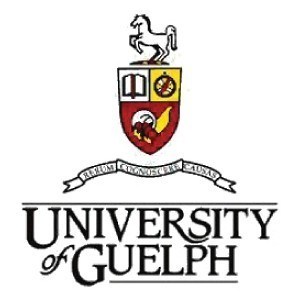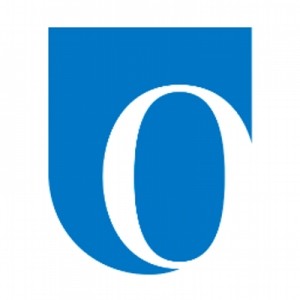Photos of university / #uofgadmission
The Bachelor of Arts (B.A.) in Economics at the University of Guelph offers students a comprehensive education in the principles and applications of economics, preparing them for diverse careers in business, government, research, and academia. This program combines rigorous theoretical coursework with practical analysis, enabling students to understand complex economic systems and develop critical thinking skills essential for decision-making in a global context. Students will explore core topics such as microeconomics, macroeconomics, econometrics, and economic policy, alongside specialized courses in areas like environmental economics, development economics, international trade, and financial economics. The program emphasizes quantitative analysis, data interpretation, and research methods, equipping graduates with the ability to evaluate economic data and communicate findings effectively. Throughout their studies, students are encouraged to engage in experiential learning opportunities, including internships, research projects, and collaborations with industry partners, to gain real-world insight and professional experience. The faculty members are experienced professionals and researchers dedicated to fostering an engaging and supportive learning environment. Graduates of the B.A. in Economics are well-positioned for careers in economic analysis, policy advisory roles, finance, consulting, and further graduate studies. The program’s interdisciplinary approach also facilitates the development of strong analytical and communication skills, essential for addressing the diverse economic challenges faced by society today. With access to modern facilities, a vibrant academic community, and opportunities for international exchange, students at the University of Guelph will gain the knowledge, skills, and experience necessary to succeed in a rapidly changing economic landscape.
The Bachelor of Arts (B.A.) in Economics at the University of Guelph offers students a comprehensive exploration of the fundamental principles and concepts that underpin the functioning of economies around the world. This program is designed to equip students with a strong foundation in economic theory, quantitative methods, and critical thinking skills necessary for analyzing complex economic issues. Throughout their studies, students will engage with a diverse range of topics, including microeconomics, macroeconomics, economic policy, international trade, and development economics. The curriculum emphasizes both theoretical understanding and practical applications, preparing graduates for careers in government, industry, academia, or further advanced studies. The program also encourages the development of research skills, data analysis, and effective communication, enabling students to interpret economic data and communicate insights clearly and effectively. Students will have opportunities to participate in internships, co-op placements, and research projects, providing valuable real-world experience and professional networking opportunities. The interdisciplinary nature of the program allows students to incorporate perspectives from other fields such as political science, statistics, and business, enriching their understanding of economic phenomena. Additionally, the program emphasizes ethical considerations and social responsibility in economic decision-making, fostering a well-rounded and thoughtful approach to economics. Graduates of the B.A. in Economics are well-prepared to pursue further education or enter a variety of careers in finance, consulting, policy analysis, international development, and more. With small class sizes and dedicated faculty, students at the University of Guelph’s Economics program benefit from personalized attention and mentorship. Overall, this program aims to develop critical thinkers who can analyze global economic challenges and contribute effectively to society through informed decision-making and innovative solutions.
The Bachelor of Arts (BA) in Economics at the University of Guelph requires students to complete a total of approximately 120 undergraduate credits to graduate. The program is designed to provide students with a comprehensive understanding of economic theory, applied economics, and quantitative analysis. Core courses include Introduction to Microeconomics and Macroeconomics, Intermediate Microeconomic and Macroeconomic Theory, and Quantitative Methods for Economics. Students are also expected to choose from a range of electives such as International Economics, Environmental Economics, and Public Policy.
In addition to coursework, students may be required to participate in seminars and undertake a senior thesis or capstone project to demonstrate their ability to apply economic principles to real-world issues. The faculty emphasizes the development of critical thinking and analytical skills, encouraging students to engage in research projects and practical applications. To fulfill program requirements, students must also complete prerequisites for advanced courses and maintain a minimum GPA as stipulated by departmental standards.
The program encourages students to gain practical experience through internships, co-op placements, or fieldwork, which are often integrated into the curriculum or offered as optional opportunities. Students are required to complete a set number of credits in the social sciences and humanities to foster a well-rounded education. To graduate with honours, students typically need to achieve higher academic standing, often above a specified GPA threshold.
Overall, the program aims to prepare graduates for careers in government, business, finance, or further study in economics or related fields. The curriculum is regularly reviewed and updated to reflect current economic issues and methodological advancements, ensuring students are equipped with relevant knowledge and skills for the modern economy.
The University of Guelph offers a range of financing options for students enrolled in the Economics undergraduate program. Tuition fees are established annually and vary depending on the student’s residency status; domestic students benefit from subsidized rates, whereas international students pay higher tuition fees. The university provides detailed fee structures on its official website, allowing prospective students to plan their finances accordingly. In addition to tuition, students should consider additional costs such as books, supplies, housing, and personal expenses, which can vary based on individual circumstances and lifestyle choices.
Financial aid is available through various schemes. The University of Guelph offers merit-based scholarships for excellent academic performance, which are awarded automatically or through application processes. These scholarships can significantly reduce the financial burden for top students. Furthermore, need-based bursaries are available and are awarded based on financial circumstances, assisting students who demonstrate financial need. The university also administers federal and provincial student loan programs, providing students with low-interest loans to cover educational expenses. Many students also take advantage of work-study programs, which allow part-time employment opportunities on campus to help offset costs.
Apart from university-sponsored aid, students are encouraged to explore external sources of financing, including private scholarships, employer sponsorships, and community grants. University of Guelph’s financial services office offers counseling to help students navigate their options and complete necessary documentation for financial assistance. International students are advised to seek out scholarships and funding opportunities specific to their status, as well as explore private sponsorship or external scholarships offered by their home countries or international organizations.
The university emphasizes the importance of early application for financial aid to maximize chances of receiving support. Students are encouraged to review all options and plan their financing well in advance of their program start date. Overall, the University of Guelph provides comprehensive financial support options designed to make pursuing an Economics degree accessible and affordable for qualified students.
The University of Guelph offers a Bachelor of Arts (BA) and Bachelor of Science (BSc) in Economics, designed to provide students with a comprehensive understanding of economic theories, principles, and applications. The program aims to develop analytical and critical thinking skills, enabling graduates to interpret economic data, understand market mechanisms, and evaluate public policies. Students in the Economics program at the University of Guelph benefit from a curriculum that integrates both microeconomic and macroeconomic disciplines, along with courses in econometrics, financial economics, and development economics, among others. This multidisciplinary approach prepares students for various career paths including banking, finance, government, international organizations, and consulting firms. The program emphasizes experiential learning through case studies, projects, and internships, which help students apply theoretical knowledge to real-world situations. Faculty members in the department are highly qualified, with research interests spanning areas such as labor economics, environmental economics, and economic policy analysis. The university’s commitment to research and applied learning ensures that students are well-equipped to meet the demands of a rapidly changing economic landscape. Additionally, students have access to resources such as the university’s library, economic data analysis labs, and career services, all aimed at enhancing their educational experience. Co-curricular activities like seminars, guest lectures, and student organizations related to economics further enrich the academic environment. Graduates of the Economics program at the University of Guelph often find employment in diverse sectors or choose to pursue graduate studies in economics, business, or related fields. The program's flexible structure allows students to tailor their coursework to specific interests and career goals, including options for specialization in areas like international economics, financial markets, or public policy. Overall, the program is designed to produce informed, skilled, and adaptable economists who can contribute meaningfully to society and the economy.

